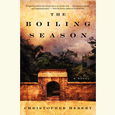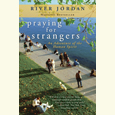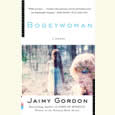A Risk Worth Taking
Jesse Graves writes poems about the things he cares most about
East Tennessee native Jesse Graves had been publishing poetry in anthologies and national journals for years when Texas Review Press finally published his long-awaited first collection, Tennessee Landscape with Blighted Pine. The book has since earned high acclaim, including the Appalachian Writers Association Book of the Year Award in poetry and the Weatherford Award, presented annually by Berea College and the Appalachian Studies Association. It was also nominated for the Kate Tufts Discovery Award from the Claremont Graduate University in California. Such accolades are no surprise to those who have worked with Graves and followed his career. As novelist Ron Rash notes, “These poems have the music, wisdom, and singular voice of a talent fully realized, and make abundantly clear that Jesse Graves is one of America’s finest young poets.”
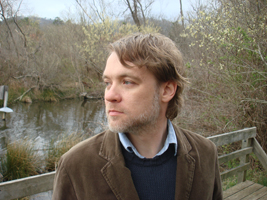 Graves is an assistant professor in the department of literature and language at East Tennessee State University in Johnson City, but much of his work is rooted in his upbringing in Sharps Chapel, Tennessee, where his ancestors first settled in the 1780s. In a recent email exchange, he answered questions about Tennessee Landscape with Blighted Pine and the palpable sense of place that infuses his work.
Graves is an assistant professor in the department of literature and language at East Tennessee State University in Johnson City, but much of his work is rooted in his upbringing in Sharps Chapel, Tennessee, where his ancestors first settled in the 1780s. In a recent email exchange, he answered questions about Tennessee Landscape with Blighted Pine and the palpable sense of place that infuses his work.
Chapter 16: I understand that this book has been a long time coming.
Jesse Graves: Some of these poems go back to 1999 or 2000, though most that made it into the book are more recent than that. I decided seven or eight years ago that I wasn’t going to rush my first book into print, and I’m happy now that I was patient enough to wait for the right poems to come together.
Chapter 16: What first drew you to poetry?
Graves: I started writing in high school, or maybe even middle school, but back then I thought I was writing songs. It turns out I wasn’t a natural musician and that what I really liked were the lyrics to my favorite songs, how they could evoke an image or a feeling or tell a story. I was in college before I realized that what I really loved was poetry and started seriously trying to write it.
Chapter 16: Which poets have most influenced you?
Graves: I have some favorite “classic” poets, especially Walt Whitman, Emily Dickinson, and Robert Frost in America, and William Wordsworth, John Keats, and Rainer Maria Rilke from abroad. I read lots of contemporary poetry, though, and many of my favorites are from the South, including Robert Morgan, Charles Wright, and David Bottoms. I have found that because my subject matter is often similar to those poets, reading poems from other cultures helps me to keep a large canvas open for my own work. Lately I have been reading some French poets in translation, especially enjoying Arthur Rimbaud and Jean Follain, and also the Polish poet Adam Zagajewski.
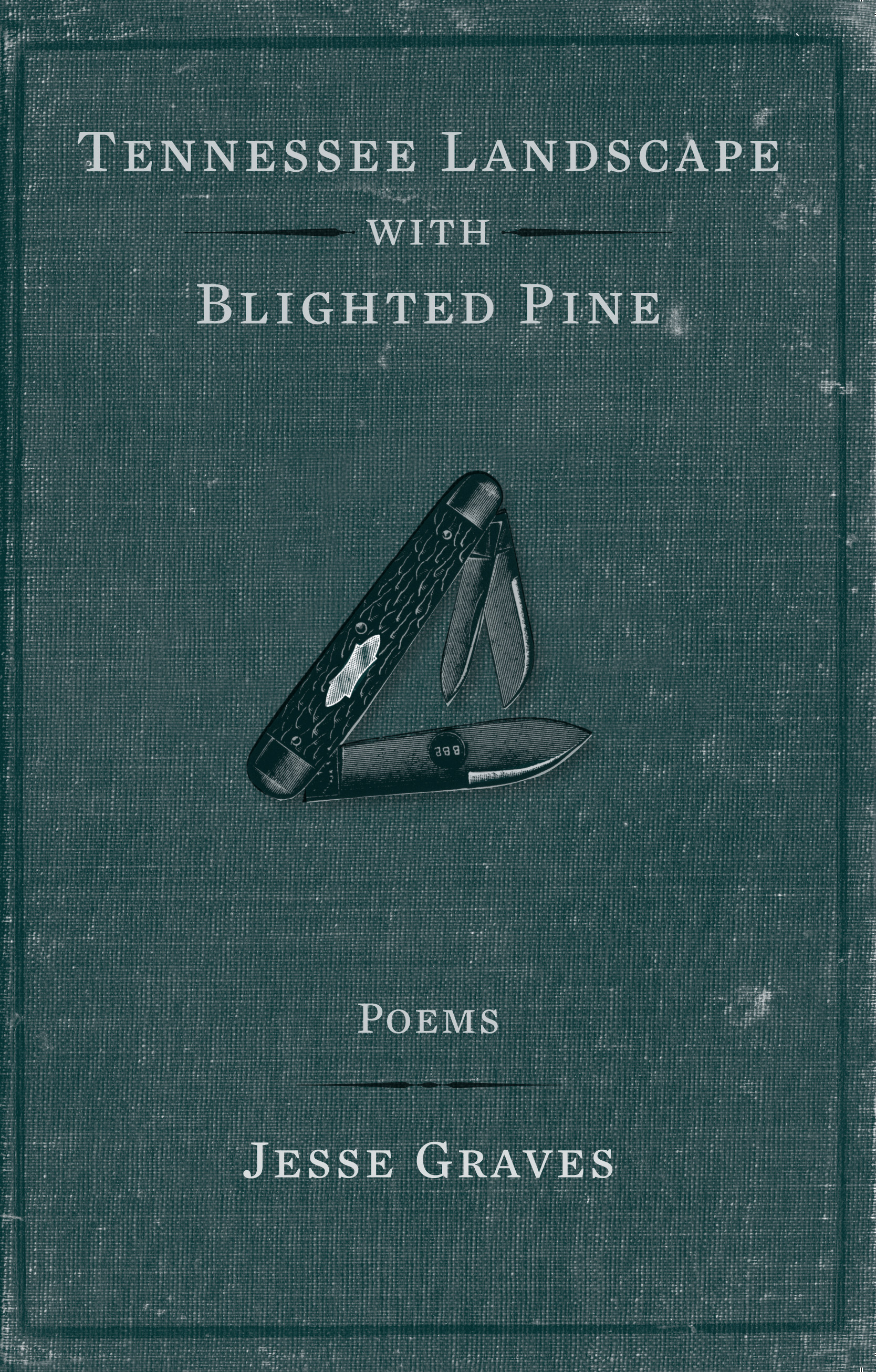 Chapter 16: Family is a recurrent theme in Tennessee Landscape with Blighted Pine. How do you manage to write about your own family without being sentimental?
Chapter 16: Family is a recurrent theme in Tennessee Landscape with Blighted Pine. How do you manage to write about your own family without being sentimental?
Graves: I hope I mostly avoid sentimentality, but my work tends pretty close to the line. I had the chance as a graduate student to study with Jack Gilbert, one of the truly great American poets, who was a visiting writer at the University of Tennessee. He gave me some advice about this that I’ve never forgotten: he said that sentimentality was the risk most worth taking in poetry. He meant that what you feel strongest about is what your poems should be about, and that to avoid that is to leave the real feelings out of the work.
Chapter 16: Your poems evince a clear sense of place—do you think of yourself as an Appalachian poet?
Graves: I feel happy to be associated with Appalachia, and proud of that as my cultural heritage. Most writers want to stay away from labels that might simplify their work, and I hope that people don’t make too many assumptions about my poems because of where I’m from. The tradition of lyric poetry I relate to includes writers from all over the world, Appalachia included.
Place is part of the sensual world that inspires my writing. I’ve said before that if I were from Memphis, Tennessee, instead of Sharps Chapel, Tennessee, my poems would still be just as much about place, and environment, as they are now, because that is innate to my sensibility. The imagery would probably be different, but the emphasis would be the same—I’m sure of it.
Chapter 16: You received your M.F.A. degree from Cornell, and you’ve taught at the University of New Orleans. Did living so far from home affect your writing?
Graves: I think living outside the region for five years gave me a wonderful opportunity to see my home place in perspective, to contrast it with the landscape and lifestyles in a couple of really distinctive places. It was also important for me to miss East Tennessee for a while, to think about it from a distance and consider what I loved about it. In some ways, I felt very comfortable in a place like Ithaca, New York, where there is a great university, with a real culture of books and learning, where curiosity is prized and not considered with suspicion, where the politics feel more humane than here at home.
Chapter 16: Is it difficult to keep a balance between teaching and writing?
Graves: I love teaching, in every setting and with every group of students I’ve experienced. I know I’ve been given a real gift to get to work at something I love, and which feels so natural to me. Teaching and writing are a perfect complement to me, because I feel both social and solitary in pretty much equal measure. I have arrived at ETSU at a really special moment, when we have an incredible group of writing students, and where we have an opportunity to build on an already strong community. I’ve had such great teachers in my time, including Kenneth Venable in high school and David Worley in my first year of college at Lincoln Memorial University, that I truly believe that great teachers can change lives. So for me, teaching has been a way to try and give something back for all the gifts my teachers have given me.
Chapter 16: Tennessee Landscape with Blighted Pine has won some major awards. Does that sort of validation influence your new work?
Graves: The Weatherford Award was a wonderful surprise. The validation has felt really good, I admit, though I would quickly point out that many truly great poets (Emily Dickinson, for example) never received any outside validation at all, so the real gratification for a poet has to come from within, from knowing you’ve made the best work you can make out of what you’ve been given to work with.
Chapter 16: Do you write in any genres besides poetry?
Graves: I have written quite a few essays through the years, and I like having several projects in mind at once, so that if I get stalled on one thing, I can move on to another. I don’t mean that I am multi-tasking—when I’m writing a poem, it has my full attention—only that I’m comfortable with shifting gears. I probably learned this from my mom in the kitchen, who has always been a great cook, or from my dad on the farm, who has always been able to fix anything that needed it.
Chapter 16: What are you writing now?
Graves: I am almost always working on poems, so I hope eventually I will have a second book of poetry. I like to sit with poems and get to know them before trying to publish them, so I don’t really have a timetable for it. The next thing should be a book of essays on Robert Morgan’s writing that I am currently co-editing with an excellent scholar at Mississippi State named Robert West. The book is tentatively called Time’s Music: Essays on the Poetry and Prose of Robert Morgan, and will be published by McFarland Publishers out of North Carolina. This will be the first book on Morgan’s work, and it has some great essays by renowned scholars and also some great pictures of Morgan and his family.
Chapter 16: What advice do you give to young poets?
Graves: Poetry requires a long apprenticeship. I always encourage young poets to be patient and persistent, to persevere, even if the poems haven’t yet reached their potential. Most importantly, read as much as you can—find a favorite poet or two, and read everything they ever wrote, but also read broadly, so that you see how vast the possibilities are for this art form. Try to understand even the poems you don’t like, because they might teach you something. It also helps to find a friend, someone who will read your poems honestly and encouragingly—poems get written in solitude, but they thrive in community.
To read a poem from Tennessee Landscape with Blighted Pine by Jesse Graves, click here.

